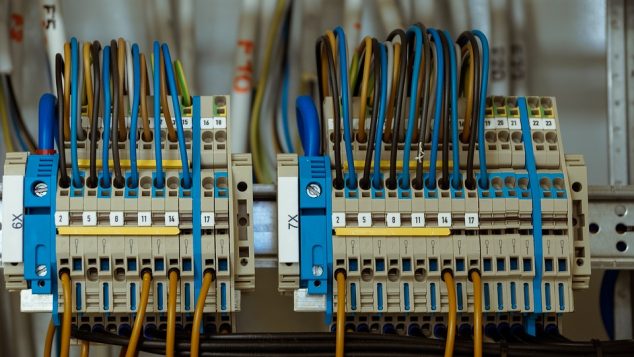A butcher block is an essential piece of equipment for any bar. It allows you to quickly and easily prepare meat for cooking and provides a convenient surface on which to work. In addition, a butcher block is a great way to add extra storage space to your bar.
Having a butcher block in your bar will make your life much easier and help improve your establishment’s overall functionality. But we’re sure you’re not entirely satisfied yet with that answer, so let us get into more details below.
You Can Add Your Bar’s Name to It
 Did you know that custom butcher blocks for bars are becoming increasingly more popular? That’s right, more and more bars are opting to add their name or logo to their butcher block. This is a great way to make your bar stand out from the rest and show your customers that you’re serious about quality.
Did you know that custom butcher blocks for bars are becoming increasingly more popular? That’s right, more and more bars are opting to add their name or logo to their butcher block. This is a great way to make your bar stand out from the rest and show your customers that you’re serious about quality.
A butcher block is also a great marketing tool. By having your bar’s name on it, you’ll be able to promote your business to everyone who sees it. And, if you’re looking for a way to really make an impression, you can even have your butcher block custom-made with your bar’s name or logo carved into it.
Improved Functionality
As we mentioned before, a butcher block is a great way to improve the overall functionality of your bar. By having a dedicated space for preparing meat, you’ll be able to work more quickly and efficiently. Additionally, a butcher block provides a convenient surface on which to chop vegetables or mix cocktails.
If you’re looking for a way to take your bar’s functionality to the next level, a custom butcher block is always the way to go.
Increased Storage Space
In addition to improved functionality, a butcher block can also provide you with extra storage space. By adding a few shelves or cabinets to your butcher block, you’ll be able to store all of your bar’s supplies in one convenient place. This will free up valuable space in your bar and make it easier to keep things organized. You won’t have to worry about where to put everything anymore because you’ll have plenty of room with a butcher block.
The Bottom Line
 Bars around the world serve food, too, aside from the obvious liquor. For this reason, it’s crucial to have a place where you can prep the food. That’s why every bar needs a butcher block. It provides a space for preparing meat, chopping vegetables, and even mixing cocktails. In addition, it also offers extra storage space for all of your bar’s supplies. So, if you’re looking for a way to improve your bar’s functionality and make it more efficient, a butcher block is the way to go. Thanks for reading, and we hope this has been helpful.
Bars around the world serve food, too, aside from the obvious liquor. For this reason, it’s crucial to have a place where you can prep the food. That’s why every bar needs a butcher block. It provides a space for preparing meat, chopping vegetables, and even mixing cocktails. In addition, it also offers extra storage space for all of your bar’s supplies. So, if you’re looking for a way to improve your bar’s functionality and make it more efficient, a butcher block is the way to go. Thanks for reading, and we hope this has been helpful.
What are your thoughts? Do you think every bar should have a butcher block? Let us know in the comments below.






 The credentials that are needed to carry out electrical works have to be availed by the candidate electrician. Qualified electricians must have documents detailing their qualifications, including valid state licenses and insurance certificates. It is mandatory, therefore, to gain prior information on the credentials that an electrician ought to possess.
The credentials that are needed to carry out electrical works have to be availed by the candidate electrician. Qualified electricians must have documents detailing their qualifications, including valid state licenses and insurance certificates. It is mandatory, therefore, to gain prior information on the credentials that an electrician ought to possess. The severity with which the risk of fire comes as a result of electrical faults is some of the most commonly seen issues of debate today. Knowing the best electrician to hire needs one to be on the look-out for any testimonials from past clients to the electrician. These would be necessary for evaluating the quality and safety levels of his or her services to the previous clients. Home electrical work requires certified electricians and those with the sound background in providing similar services to their clients. Consequently, factors as licensing and seeking for professional advice among others are important tips towards hiring the right electrician. By getting the right person to do the job, risk levels are minimized.
The severity with which the risk of fire comes as a result of electrical faults is some of the most commonly seen issues of debate today. Knowing the best electrician to hire needs one to be on the look-out for any testimonials from past clients to the electrician. These would be necessary for evaluating the quality and safety levels of his or her services to the previous clients. Home electrical work requires certified electricians and those with the sound background in providing similar services to their clients. Consequently, factors as licensing and seeking for professional advice among others are important tips towards hiring the right electrician. By getting the right person to do the job, risk levels are minimized.
